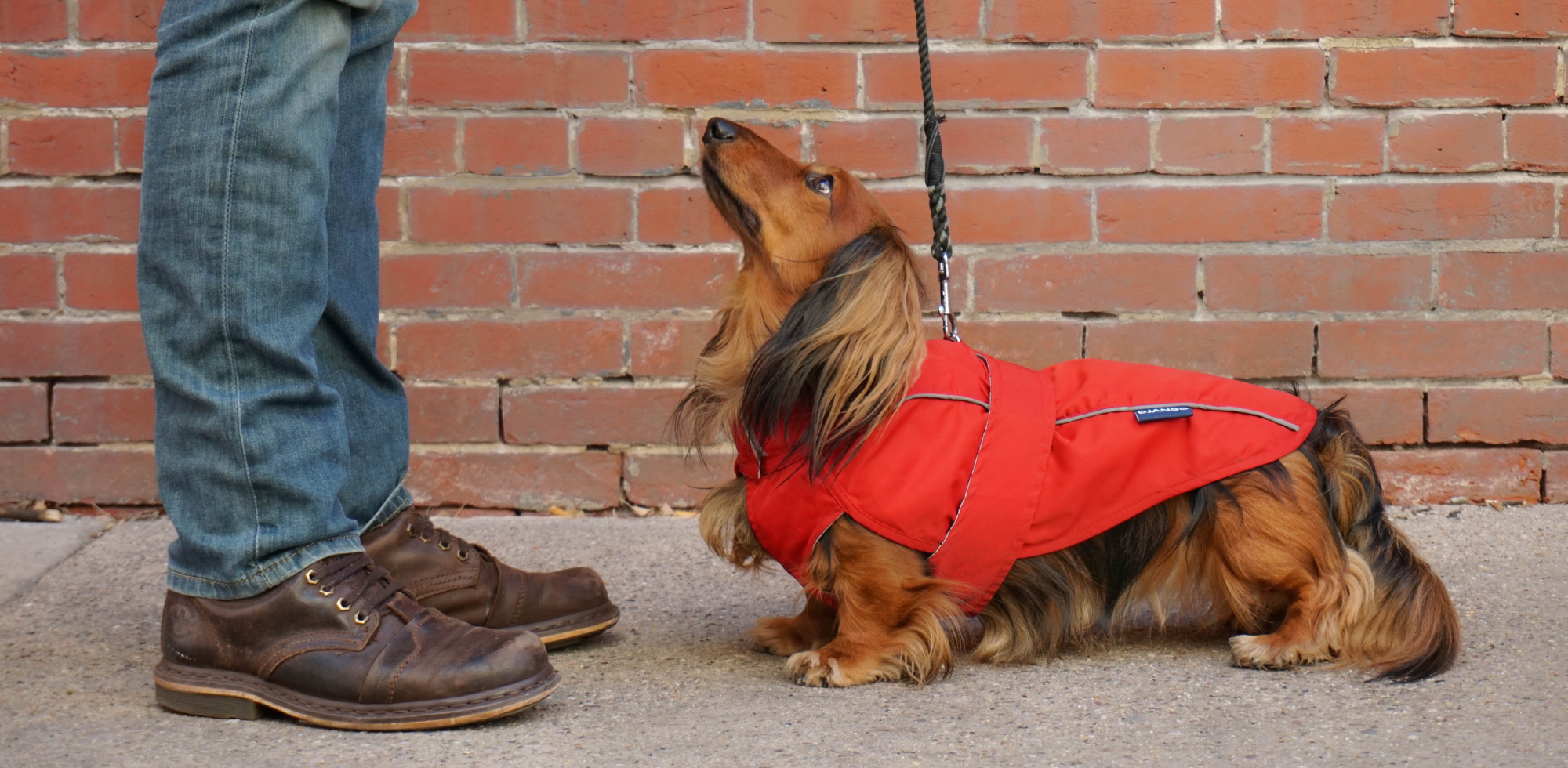Updated April 2020
A pomeranian in Hong Kong recently made news after testing positive for the novel coronavirus that was first detected in China. The dog's owner had previously tested positive for COVID-19, and concerns quickly mounted that dogs may be a new source of infection.
Can domestic dogs catch and fall ill from the highly contagious respiratory virus circulating the globe? Can your four-legged best friend infect you with the virus? Here is everything you need to know.
Can my dog or cat infect me with COVID-19? Can I give COVID-19 to my pet?
The Center for Disease Control (CDC) confirms that there is no evidence dogs or cats are a significant source of COVID-19 infection. In other words, it is very unlikely that your dog or cat infects you with COVID-19. Yes, the virus initially came from an animal source, but the CDC stresses that the novel coronavirus is largely being transmitted on a human-to-human level.
With this said, recent evidence within the United States and across the globe suggests that dogs and cats can become infected with COVID-19 after close contact with their infected owners. Human-to-animal transmission is still considered rare and unlikely, but it is possible based on new findings.
Within the United States, a pug in North Carolina was the first dog to test positive for the coronavirus in late April 2020. Three members of the dog's family were all previously diagnosed with and showing symptoms of COVID-19 in March 2020.
Two cats in New York state also tested positive for COVID-19 in late April 2020. The cats shows mild symptoms and are expected to make a full recovery.
A tiger at New York City's Bronx Zoo tested positive for the virus after showing symptoms of COVID-19. Public health employees believe the tiger contracted the virus from an infected zoo employee. Other tigers and lions at the Bronx Zoo have also exhibited symptoms of coronavirus infection.
As of April 30, 2020, the CDC cannot confirm which animals and domesticated pets can be infected with COVID-19, but the CDC does make it clear that both dogs and cats have tested positive for the virus.
If dogs are not a likely source of infection of COVID-19, how did a pomeranian and pug test positive for the virus?
The 17-year old pomeranian tested "weak positive" for COVID-19 after its owner received a positive COVID-19 diagnosis in late February 2020. It was originally believed that this "weak positive" reading was due to traces of the virus on the dog's nose and mouth, although it was later determined the pomeranian did indeed have a low level coronavirus infection.
Per CNN, "experts from the University of Hong Kong, City University and the World Organisation for Animal Health had been consulted, and all 'unanimously agreed that these results suggest that the dog has a low level of infection and it is likely to be a case of human-to-animal transmission.'"
The pug in North Carolina similarly displayed symptoms of illness after three of its human family members tested positive for COVID-19 one month prior. Experts believe the virus was transmitted to the pug from one or more of its infected family members.
Experts continue to believe that the risk of COVID-19 infection in pets is low and, importantly, the risk of transmission from animal-to-human is very unlikely. Human-to-human transmission by far remains the greatest risk of infection.
Have any other pets tested positive for the virus?
In late March 2020, a pet cat in Hong Kong tested positive for COVID-19 despite showing no symptoms of illness. A cat in Belgium also recently tested positive for COVID-19 after its owner became infected with the virus. Both cats had no symptoms of illness, and no evidence suggests that the cats are able to pass on the virus to humans.
Can dogs and cats be tested for COVID-19?
Yes, but the testing of pets is very limited right now and is only being done on a rare case-by-case basis. Routine testing of animals is not currently being done. The CDC also clearly states it does not recommend routine testing of animals at this time.
If I get sick with COVID-19, should I take any precautionary measures around my dog?
Although the CDC states dog-to-human transmission of COVID-19 has not been documented, it recommends avoiding close contact with your pet if you become infected with the virus. There are still a lot of unknowns about COVID-19, so the CDC recommends having a family or friend take care of your pet should you fall ill to the virus.
If you don't have assistance and need to care for your pet yourself, consider wearing a mask and practice frequent hand washing (warm, soapy water for at least 20 seconds).





5 comments
DJANGO
@KIM Thank you for the nice message! We’re so glad to hear you found this article useful. It is absolutely a scary and uncertain time. We’ll continue to update this article as new developments arise and as the CDC updates its website with new findings. Best to you and your family – stay well!
@KIM Thank you for the nice message! We’re so glad to hear you found this article useful. It is absolutely a scary and uncertain time. We’ll continue to update this article as new developments arise and as the CDC updates its website with new findings. Best to you and your family – stay well!
Kim
Thank you for this post – your information is very helpful! This is such a scary time with things changing day by day. Thank you again for your post!
Thank you for this post – your information is very helpful! This is such a scary time with things changing day by day. Thank you again for your post!
DJANGO
@MICHAEL Great question! Although tests are available for pet dogs and cats, routine testing is not currently being done. Testing of pets seems to be very limited and only done on a case-by-case basis. We’ve done a lot of reading on pets and COVID-19 and haven’t learned about any other animal testing. It is obviously possible it is happening somewhere, but we ourselves cannot find evidence of it.
With all that said, the CDC and other experts remain confident that the risk of animal-to-human transmission of COVID-19 is unfounded and negligible. They continue to stress that human-to-human physical contact is the greatest risk of infection.
@MICHAEL Great question! Although tests are available for pet dogs and cats, routine testing is not currently being done. Testing of pets seems to be very limited and only done on a case-by-case basis. We’ve done a lot of reading on pets and COVID-19 and haven’t learned about any other animal testing. It is obviously possible it is happening somewhere, but we ourselves cannot find evidence of it.
With all that said, the CDC and other experts remain confident that the risk of animal-to-human transmission of COVID-19 is unfounded and negligible. They continue to stress that human-to-human physical contact is the greatest risk of infection.
Michael
Thank you for the straight forward information. Are dogs or other animals being tested to the extent that we know with a high rate of confidence that it is not a concern? Stay Safe!
Thank you for the straight forward information. Are dogs or other animals being tested to the extent that we know with a high rate of confidence that it is not a concern? Stay Safe!
NormanWilkes
Thanks for the information. This is a pandemic that we should be aware of!
Dog’s Galleries
Thanks for the information. This is a pandemic that we should be aware of!
Dog’s Galleries